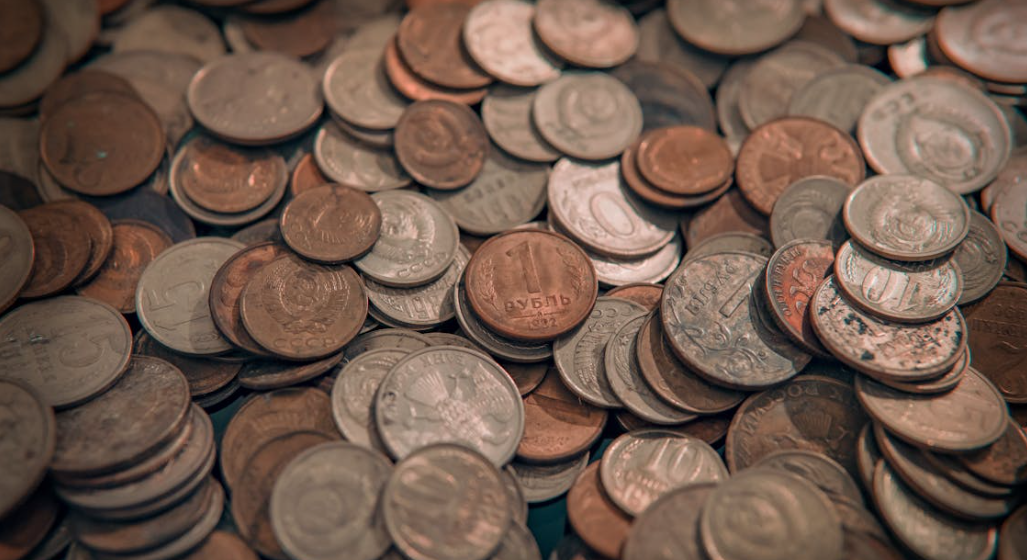- EasyCard
- Trade
- Help
- Announcement
- Academy
- SWIFT Code
- Iban Number
- Referral
- Customer Service
- Blog
- Creator
Tutorial on Recharging Cash App with a Credit Card: A Detailed Explanation of the Operation Process and Common Problems
For most users, recharging Cash App with a credit card is a very convenient way. Especially when you need to quickly deposit funds into your Cash App account, credit card payment can complete the transaction immediately, eliminating the cumbersome bank transfer process. This article will provide you with a detailed analysis of how to recharge Cash App through a credit card, solve common problems, and ensure the safe transfer of funds. In addition, if you have the need for cross-border remittances, we will introduce BiyaPay later, which is more suitable for you.

How to Recharge Cash App with a Credit Card?
Associating a credit card with a Cash App account and recharging it is a relatively simple process. First, users need to ensure that they have downloaded and installed Cash App and have completed the account registration. Then, follow these steps to add a credit card to Cash App:
- Open Cash App and log in to the account: First, make sure you have successfully logged in to Cash App. If you don’t have an account yet, you need to register first.
- Enter the profile page: Click on the profile icon in the upper left corner of the screen to enter the account settings page.
- Select “Add Credit Card”: On the account settings page, select the “Add Bank Card” option, and then enter the credit card information, including the card number, expiration date, and CVV code.
- Complete the verification: Carry out identity verification according to the requirements of the application, which may require confirming the information via email or text message.
- Finish adding: Once the credit card information is successfully added, users can use this credit card for recharging.
This process is very intuitive, but different credit cards may have different requirements. Users should choose the corresponding steps according to their own card types for operation.
What are the Advantages of Recharging with a Credit Card?
There are many advantages to recharging Cash App with a credit card, especially in terms of the speed of fund transfer. However, users should be aware of some recharging limits to avoid unnecessary fees or problems due to a lack of understanding of the rules.
Advantages of credit card recharging:
- Instant arrival of funds: Through credit card recharging, funds can usually enter the Cash App account quickly. For users in urgent need of funds, credit card recharging is much faster than traditional bank transfers.
- Simple operation: Users only need to provide credit card information to directly recharge, without having to go to the bank to complete complex procedures.
- Flexibility: For users without a bank account, a credit card provides a convenient way to recharge funds, making remittances and payments more flexible.
Limitations of credit card recharging:
- Recharging limit: Although there is no minimum recharging amount requirement, Cash App also sets an upper limit for credit card recharging for each account. Unverified users can only recharge a maximum of $2,500 per week. If a higher limit is needed, users need to complete identity verification.
- Fee issues: Credit card recharging may incur certain transaction fees, which are usually a fixed percentage of handling fees. The specific fees depend on the credit card and payment platform selected by the user.
- Credit card issues: Some credit card issuers may charge additional fees for cash recharge transactions or even impose restrictions on their use. Before recharging, users should confirm the relevant fees with the bank.
How to Change the Default Credit Card on Cash App?
Cash App allows users to change the default credit card according to their needs, and the operation is very simple. Users can easily add a new credit card to the account and choose to set it as the default payment method. This function is especially suitable for users who need to frequently use different credit cards for payment. The following are the steps to change the default credit card:
- Open Cash App and log in to the account.
- Click on the profile icon to enter the account settings.
- Select “Change Default Credit Card” in the “Payment Settings”.
- Select an added credit card or add a new credit card as the default.
- Save the settings, and the new credit card will be set as the default payment method.
This flexible setting enables users to switch payment methods according to their needs, providing greater convenience.
How to Add a Corporate Credit Card to Cash App?
In addition to personal credit cards, corporate credit cards can also be associated with Cash App, making it convenient for enterprises to manage their finances. Business owners can easily make commercial payments and remittances through Cash App. However, compared with personal credit cards, different fees and tax regulations may be involved when using corporate credit cards.
Precautions for using corporate credit cards:
- Transaction fees: Corporate credit cards usually charge different transaction fees from personal credit cards. Users should understand the relevant fees before recharging to ensure they choose the appropriate payment method.
- Financial records: When making commercial payments through Cash App, ensure that all transactions are clearly recorded to avoid tax issues.
- Remittance management: Business owners can associate the corporate credit card with the Cash App account to easily manage the enterprise’s capital flow, but they need to ensure compliance with relevant laws and regulations.
What Happens When the Recharge Fails?
When recharging Cash App with a credit card, some common problems may be encountered. Cash App provides multiple channels to help users solve these problems, including in-app customer service, phone support, and social media support.
Common problems and solutions:
- Credit card recharge failure: If the recharge fails during the process, users should check whether the entered credit card information is accurate and confirm whether the credit limit has been reached. If the problem persists, contact the issuing bank to solve it.
- Card rejection: If the credit card is rejected during recharging, users can try using other payment methods or contact the bank to solve the problem of the frozen credit card.
- High fees: Users can compare different payment methods and choose the option with the lowest fees.
Remittance Summary
Recharging Cash App with a credit card provides users with a fast and convenient payment method. Although there are some limitations and fees, overall, credit card recharging is simple to operate and the funds arrive instantly, making it suitable for users in urgent need of funds. Users should ensure that they understand the recharging limits, handling fees, and credit card-related restrictions to ensure the smooth completion of transactions.
If you are looking for a remittance method that has no limit, is fast, and is safe, BiyaPay is a good choice. It provides an efficient local remittance method, supports the fund transfer needs of multiple countries and regions, and makes cross-border remittances more relaxed and worry-free.
*This article is provided for general information purposes and does not constitute legal, tax or other professional advice from BiyaPay or its subsidiaries and its affiliates, and it is not intended as a substitute for obtaining advice from a financial advisor or any other professional.
We make no representations, warranties or warranties, express or implied, as to the accuracy, completeness or timeliness of the contents of this publication.




Contact Us
Company and Team
BiyaPay Products
Customer Services
BIYA GLOBAL LLC is a licensed entity registered with the U.S. Securities and Exchange Commission (SEC No.: 802-127417); a certified member of the Financial Industry Regulatory Authority (FINRA) (Central Registration Depository CRD No.: 325027); regulated by the Financial Industry Regulatory Authority (FINRA) and the U.S. Securities and Exchange Commission (SEC).
BIYA GLOBAL LLC is registered with the Financial Crimes Enforcement Network (FinCEN), an agency under the U.S. Department of the Treasury, as a Money Services Business (MSB), with registration number 31000218637349, and regulated by the Financial Crimes Enforcement Network (FinCEN).
BIYA GLOBAL LIMITED is a registered Financial Service Provider (FSP) in New Zealand, with registration number FSP1007221, and is also a registered member of the Financial Services Complaints Limited (FSCL), an independent dispute resolution scheme in New Zealand.



















